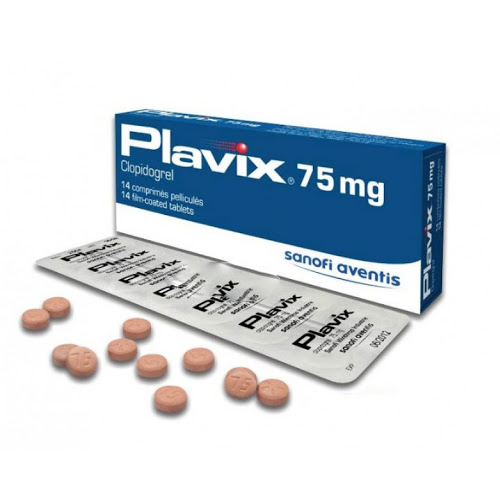Description
Clopidogrel, an antiplatelet agent structurally and pharmacologically similar to ticlopidine, is used to inhibit blood clots in a variety of conditions such as peripheral vascular disease, coronary artery disease, and cerebrovascular disease.
Clopidogrel is sold under the name Plavix by Sanofi and Bristol-Myers Squibb. The drug is an irreversible inhibitor of the P2Y12 adenosine diphosphate receptor found on the membranes of platelet cells. Clopidogrel use is associated with several serious adverse drug reactions such as severe neutropenia, various forms of hemorrhage, and cardiovascular edema.
For the reduction of atherosclerotic events (myocardial infarction, stroke, and vascular death) in patients with atherosclerosis documented by recent stroke, recent myocardial infarction, or established peripheral arterial disease.
Pharmacodynamics
Since clopidogrel is a prodrug, it must be metabolized by CYP450 enzymes to produce the active metabolite that inhibits platelet aggregation
This active metabolite selectively inhibits adenosine diphosphate (ADP) binding to its platelet P2Y12 receptor and subsequently the ADP-mediated activation of the glycoprotein GPIIb/IIIa complex, thereby inhibiting platelet aggregation.
Mechanism of action
The active metabolite of clopidogrel prevents binding of adenosine diphosphate (ADP) to its platelet receptor, impairing the ADP-mediated activation of the glycoprotein GPIIb/IIIa complex.
It is proposed that the inhibition involves a defect in the mobilization from the storage sites of the platelet granules to the outer membrane. he drug specifically and irreversibly inhibits the P2Y12 subtype of ADP receptor, which is important in aggregation of platelets and cross-linking by the protein fibrin. No direct interference occurs with the GPIIb/IIIa receptor.
As the glycoprotein GPIIb/IIIa complex is the major receptor for fibrinogen, its impaired activation prevents fibrinogen binding to platelets and inhibits platelet aggregation. By blocking the amplification of platelet activation by released ADP, platelet aggregation induced by agonists other than ADP is also inhibited by the active metabolite of clopidogrel.
Side effects
All medicines may cause side effects, but many people have no, or minor, side effects.Some medical conditions may interact with Clopidogrel.
Tell your doctor or pharmacist if you have any medical conditions.
Clopidogrel increases your risk of bleeding, which can be severe or life-threatening. Call your doctor or seek emergency medical attention if you have bleeding that will not stop, if you have blood in your urine, black or bloody stools, or if you cough up blood or vomit that looks like coffee grounds.
This is not a complete list of all side effects that may occur. If you have questions about side effects, contact your health care provider.


Reviews
There are no reviews yet.